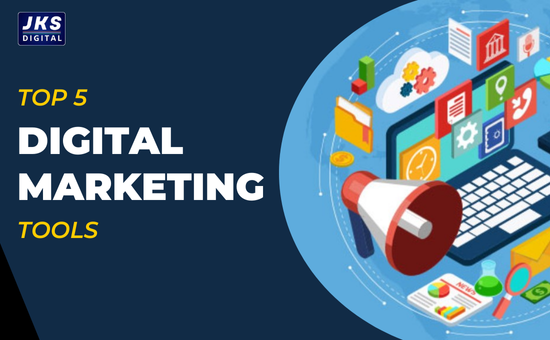Black Hat SEO in 2025: SEO (Search Engine Optimization) is an essential component of digital marketing that helps websites rank higher on search engines like Google. But not all SEO techniques are morally righteous or long-lasting. Black Hat SEO refers to unethical techniques that violate search engine guidelines in an attempt to achieve quick, high rankings. Although these methods may provide short-term gains, they come with serious risks and penalties. As we approach 2025, the importance of ethical SEO practices has never been more significant. This article explores the risks of Black Hat SEO, the potential penalties involved, and ethical alternatives that can help achieve long-term success.

What is Black Hat SEO?
Black Hat SEO is the use of dishonest and manipulative techniques to raise a website’s search engine ranks. These methods typically exploit search engine algorithms, bypassing the natural ranking process in favor of quick fixes. While they might yield immediate results, they can result in severe consequences once search engines detect these tactics.
Common Black Hat SEO Techniques in 2025
Here are some of the most common Black Hat SEO techniques used by unethical marketers in 2025:
- Keyword Stuffing: Overloading content with excessive keywords or irrelevant terms to manipulate rankings.
- Cloaking: Presenting different content to search engine bots than what is shown to users.
- Invisible Text: Using hidden text (usually the same color as the background) filled with keywords.
- Link Farms: Building low-quality links from a network of websites to artificially boost rankings.
- Content Scraping: Copying content from other websites and presenting it as your own, with little to no original value added.
Read also – Neuromarketing: Understanding Customer Thoughts to Improve Marketing
The Risks of Black Hat SEO in 2025
In 2025, the Dangers of Black Hat SEO
Even though Black Hat SEO tactics could produce results quickly, the hazards are much greater in the long run. With search engines constantly evolving and becoming smarter, using such tactics can lead to significant consequences.
1. Google Penalties and Algorithm Updates
Google has a sophisticated algorithm designed to detect and penalize Black Hat tactics. Penalties can be as severe as dropping a website’s ranking or completely removing it from search engine results. Major algorithm updates like Google’s Penguin and Panda are designed specifically to target and punish websites that engage in manipulative practices.
2. Damaged Reputation
Search engines are not the only ones who notice unethical SEO tactics. Users can also recognize when a website is misleading or offering low-quality content. A damaged reputation can lead to decreased trust, lower engagement, and a higher bounce rate.
3. Risk of De-indexing
De-indexing refers to a website being removed from a search engine’s database entirely. If a website is caught using Black Hat SEO, it risks being de-indexed by search engines like Google, effectively making it invisible to anyone searching online.
Read also – When to Do Content Marketing? Know the Right Strategy and Timing
4. Legal Consequences
Some Black Hat techniques, like plagiarism or copyright infringement, could result in legal action. If content is scraped from other websites without permission, the original content creators may pursue legal action.
Penalties for Black Hat SEO in 2025
Black Hat SEO penalties can vary from slight declines in search engine rankings to complete exclusion from search engine results. In 2025, with advancements in AI and machine learning, Google’s algorithm has become even more adept at identifying suspicious or manipulative SEO behavior. Here are some penalties a website may face:
- Manual Penalties: Google can manually review a website and apply a penalty if it violates the guidelines. This could result in a drastic drop in rankings.
- Algorithmic Penalties: Algorithms like Google Panda, Penguin, and Hummingbird are designed to detect unnatural ranking tactics. These penalties can affect your site’s position for months or even years.
- De-indexing: As mentioned earlier, severe penalties can lead to a site being removed from Google’s index entirely, making it impossible to rank for any keywords.
- Loss of Trust: If a website gets flagged for Black Hat SEO, it loses the trust of search engines and users alike, which can be difficult to rebuild.
Read also – GMB SEO: How to Rank Your Listing on Google’s Top Results
Alternatives to Black Hat SEO: White Hat SEO
Instead of resorting to Black Hat SEO, businesses and bloggers can adopt White Hat SEO techniques that focus on ethical practices. These methods align with search engine guidelines and provide sustainable, long-term growth. Here’s a list of White Hat SEO practices that should be prioritized in 2025:
- Quality Content Creation: Focus on creating high-quality, informative, and engaging content that provides value to your audience. Well-researched and well-written content will naturally rank higher over time.
- On-Page SEO Optimization: Ensure your website structure is optimized for search engines. This includes proper use of headings, meta tags, and keyword optimization.
- Mobile Optimization: With more people browsing on mobile devices, having a mobile-optimized website is crucial for both user experience and SEO.
- Backlink Building: Instead of using link farms, focus on acquiring high-quality backlinks from reputable websites in your industry. Guest blogging, partnerships, and creating shareable content are great ways to build organic backlinks.
- User Experience (UX): Websites that provide a satisfying user experience are given preference by search engines. Make sure your site is easy to navigate, fast-loading, and visually appealing.
Why White Hat SEO is the Best Strategy for 2025
In 2025, Black Hat SEO techniques may still be tempting due to their quick results, but the future of SEO is in ethical, sustainable practices. White Hat SEO, although slower to yield results, builds long-term success by following search engine guidelines and focusing on user experience.
Search engines like Google have become more sophisticated, and websites that engage in manipulative tactics are more likely to be penalized. White Hat SEO, on the other hand, emphasizes creating high-quality, relevant content, optimizing websites for users, and building authentic backlinks.
By adopting White Hat practices, websites can build a strong online presence that lasts and avoids the risks associated with Black Hat SEO. Sustainable growth and a strong reputation are key to thriving in the competitive digital landscape of 2025.
Read also – Comparison of Social Media Facebook, YouTube, and LinkedIn: Choosing the Best Platform
Conclusion
While Black Hat SEO may offer quick results, the risks involved make it an unsustainable strategy for long-term growth. In 2025, ethical SEO practices are more important than ever. Focusing on high-quality content, ethical backlinking, and an excellent user experience is the way forward. By embracing White Hat SEO, websites can not only avoid penalties but also build a reputation that attracts organic, engaged traffic over time.
It’s time to choose the right path—build your website’s reputation and traffic the right way, and avoid the risks of Black Hat SEO. The future of SEO lies in ethical, user-centric strategies that provide long-lasting success.






